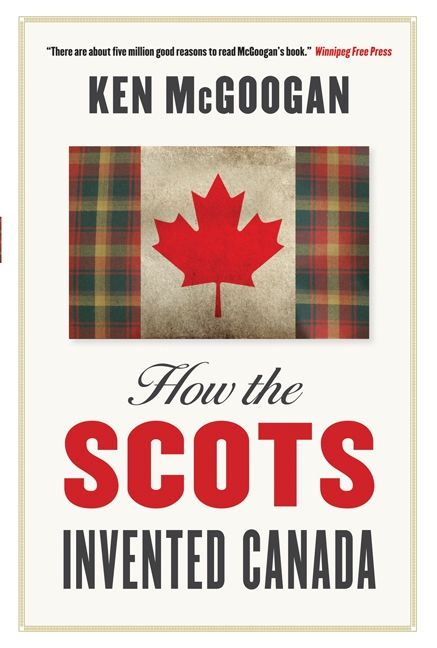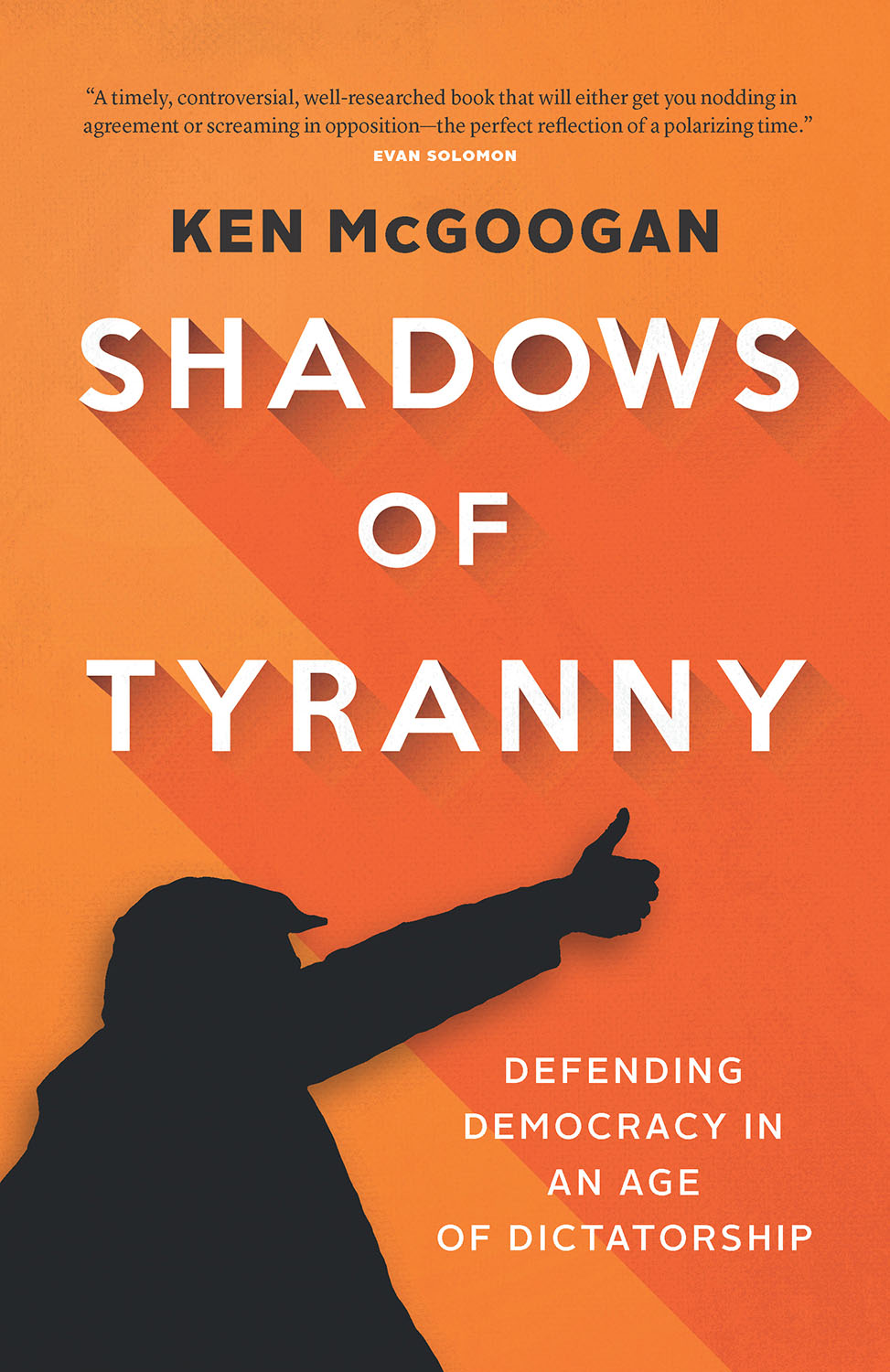Flight of the Highlanders

Overview
Bestselling author Ken McGoogan tells the story of those courageous Scots who, ruthlessly evicted from their ancestral homelands, sailed in “coffin ships” to Canada, where they battled hardship, hunger and even murderous persecution.
After the Scottish Highlanders were decimated at the 1746 Battle of Culloden, the British government banned kilts and bagpipes and set out to destroy a clan system that for centuries had sustained a culture, a language, and a unique way of life. The Clearances, or forcible evictions, began when landlords—among them traitorous clan chieftains—realized they could increase their incomes dramatically by driving out tenant farmers and dedicating their estates to sheep.
McGoogan's 15th published book, Flight of the Highlanders intertwines two main narratives. The first is that of the Clearances themselves, during which roughly 200,000 Highlanders were driven from lands occupied by their forefathers for hundreds of years. Some were burned out of their homes and others were beaten unconscious. The second narrative focuses on those who escaped as refugees to Canada. Frequently misled by false promises, they battled impossible conditions wherever they arrived, from the forests of Nova Scotia to the winter barrens of northern Manitoba.
Between the 1770s and the 1880s, tens of thousands of dispossessed and destitute Highlanders crossed the Atlantic — prototypes for the refugees we see arriving today from around the world. If contemporary Canada is more welcoming to newcomers than most countries, it is at least partly because of the lingering influence of those earliest Scottish refugees. Together with their better-off brethren—the lawyers, educators, politicians and businessmen—those unbreakable Highlanders were the making of Canada.
Read MoreCeltic Lightning

Overview
With Celtic Lightning, Ken McGoogan plunges into the perpetual debate about Canadian roots and identity: who do we think we are? He argues that Canadians have never investigated the demographic reality that informs this book -- the fact that more than nine million Canadians claim Scottish or Irish heritage. Did the ancestors of more than one quarter of our population arrive without cultural baggage? No history, no values, no vision? Impossible.
McGoogan writes that, to understand who we are and where we are going, Canadians must look to cultural genealogy. He builds on the work of Richard Dawkins, who contends that ideas and values (“memes”) can be transmitted from one generation to another. Scottish and Irish immigrants arrived in Canada with values they had learned from their forebears. And they did so early enough, and in sufficient numbers, to shape an emerging Canadian nation.
McGoogan highlights five of the values they imported as foundational: independence, democracy, pluralism, audacity, and perseverance. He shows that these values are thriving in contemporary Canada, and traces their evolution through the lives of thirty prominent individuals -- heroes, rebels, poets, inventors, explorers, pirate queens -- who played formative roles in the histories of Scotland and Ireland.
In the 19th century, two charged traditions came together in Canada. That reconnection, Scottish with Irish, sparked Celtic lightning . . . and gave rise to a Canadian nation.
Read More50 Canadians Who Changed The World

Overview
Celebrating Canadians who have created the present and are shaping the future, this book uses the successful format of How the Scots Invented Canada. Ken McGoogan takes the reader on a compelling journey through the lives of 50 accomplished Canadians -- all born in the twentieth century -- who have changed and often continue to change the great wide world.
Here we encounter an astonishing array of activists and humanitarians, musicians and writers, comedians and visionaries, scientists and inventors, all of them transformative figures who have made an impact internationally.
From Marshall McLuhan, Jane Jacobs, Deepa Mehta, and Stephen Lewis to David Suzuki, Oscar Peterson, Romeo Dallaire, and Irshad Manji, McGoogan shows why and how Canadians are making their mark globally as initiators and agents of progressive change. Forty per cent of the figures included are women.
Cutting-edge Canada, the focus of this book, is uniquely pluralistic—multicultural, multi-ethnic, and multinational. The diversity that emerges in these pages defines who we are as citizens, enabling and encouraging individuals to make a difference. With this spirited, accessible work, Ken McGoogan shows how twentieth-century Canada is transforming the twenty-first century.
Read MoreHow The Scots Invented Canada

Overview
Canadians of Scottish descent, who today total over 4.7 million, have never made up more than 16 per cent of Canada’s population. Yet they have supplied thirteen of twenty-two Canadian prime ministers, and have made proportionate contributions in exploration, education, banking, military service, railroading, invention, literature, you name it.
Award-winning author Ken McGoogan has written a vivid, sweeping narrative showcasing more than sixty Scots who have shaped Canada. They include fur traders Alexander Mackenzie and the “Scotch West-Indian” James Douglas, who established national boundaries; politicians John A. Macdonald and Nellie McClung, who created a system of government; and visionaries Tommy Douglas, James Houston, Doris Anderson and Marshall McLuhan, who turned Canada into a complex nation that celebrates diversity.
McGoogan toasts Robbie Burns, recalls the first settlers to wade ashore at Pictou, Nova Scotia, and celebrates such hybrid figures as the Cherokee Scot John Norton and Cuthbert Grant, father of the Métis nation. In How the Scots Invented Canada, Ken McGoogan uncovers the Scottish history of a nation-building miracle.
Read MoreCanada’s Undeclared War

Overview
If this country ends with a whimper, Kenneth McGoogan writes, it will be because English speaking Canadians do not understand that culture is politics. And that we have here a culture a way of thinking and being a nation-wide set of values and preoccupations worth defending.
Drawing on more than a decade's experience as a literary journalist, McGoogan argues that an undeclared war is raging in Canada on a variety of fronts: French-English, Canadian-American, East-West, Native-White, the list goes on. And that Canadian writers are in the thick of every battle
Canada’s Undeclared War is an exploration of the politics of Canadian culture. It's a book-length dispatch from the literary front lines, a late-breaking bulletin that draws on eyewitness, as-it-happened reportage. It's an extended telegram from the trenches about Canada shock troops and the battles they're fighting.
Read MoreShadows of Tyranny

Overview
Twentieth-century novels such as George Orwell’s 1984 and Margaret Atwood’s The Handmaid’s Tale conveyed visions of dystopia that evolved out of past tyrannies. They warned that if history doesn't repeat itself, certainly it extrapolates and often it rhymes. In Shadows of Tyranny, an audacious work of nonfiction, acclaimed author Ken McGoogan shows how the current resurgence of authoritarianism in the United States recalls Europe in the 1930s.
In Nazi Germany, a charismatic demagogue contrived to unify right-wing extremists bent on seizing control of the state. The most powerful nation in Europe ran amok, invading and occupying its neighbors. Defenders of democracy had to contend not just with Hitler but with Franco, Mussolini, and Stalin, who together defined the First Age of Dictatorship. Today we have entered the Second Age. With tyrants ruling Russia, China, and North Korea, among other countries, Donald Trump has never met an autocrat he did not admire.
In the 1930s, many welcomed the dictators, resorted to scapegoating, and fanned embers of anti-Semitism into a conflagration. Shadows of Tyranny celebrates those who fought the racist wildfire – soldiers, of course, but also novelists like Orwell and Sinclair Lewis, journalists like Matthew Halton, Dorothy Thompson, and Martha Gellhorn, and singular figures like Hannah Arendt, Norman Bethune, and Winston Churchill.
McGoogan takes a biographical approach to history, creating a montage of individual experience while inviting readers to engage in discovering an overarching narrative. He melds conventional history, political analysis, and literary observation into a genre-busting work of “cautionary nonfiction.”
Read More